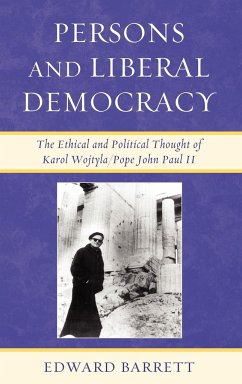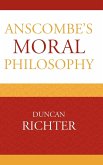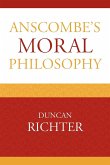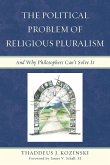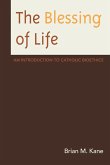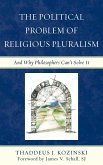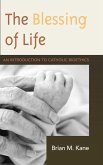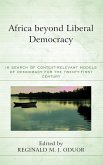Moving from an historical analysis of the Catholic Church's gradual endorsement of liberal democracy to an explication of the ethical and political thought of Karol Wojtyla/John Paul II, Persons and Liberal Democracy concisely explains the relatively recent shift in the Church's political theory and, in the process, defends what could be deemed a non-statist form of welfare liberalism. This book offers a systematic account of John Paul's philosophical and theological ethics and their relationship to the key elements of his political thought and then brings this thought into conversation with some important strands of Christian and secular political theory deliberating the nature and legitimacy of liberalism.
Hinweis: Dieser Artikel kann nur an eine deutsche Lieferadresse ausgeliefert werden.
Hinweis: Dieser Artikel kann nur an eine deutsche Lieferadresse ausgeliefert werden.
This is a first-class work of scholarship that brings out the subtlety and coherence of John Paul?s ethical and political thought, carefully distinguishes its philosophical and theological roots, and puts it into dialogue with contemporary secular liberaland communitarian political thinkerssss -- Nathan Tarcov, Committee on Social Thought and Department of Political Science, University of Chicago By offering an overview of a subject that has been relatively neglected by students of John Paul II-namely, his political theory-Persons and Liberal Democracy makes a valuable contribution to the literature on one of the seminal figures of modern Catholic thought. This book is essential reading for anyone interested in contemporary Catholic social theory. -- Kenneth Grasso, Texas State University-San Marcos Edward Barrett has synthesized the anthropological theses that underlay the social teaching of the late Pope John Paul II, and he has placed them in conversation with those who will shape social polity in the future. This is an insightful and much needed work. -- Francis Cardinal George, OMI, Archbishop of Chicago This is a first-class work of scholarship that brings out the subtlety and coherence of John Paul's ethical and political thought, carefully distinguishes its philosophical and theological roots, and puts it into dialogue with contemporary secular liberal and communitarian political thinkers -- Nathan Tarcov, Committee on Social Thought and Department of Political Science, University of Chicago Barrett is the director of research at the US Naval Academy's Stockdale Center for Ethical Leadership. His book is a well-written description of the political thought of the late Pope John Paul II (Karol Wojtyla). It seeks to show that John Paul adopted liberal thinking in response to his experiences under the totalitarian regimes of the Nazis and communists. Barrett writes with a firm command of Western political theory to reveal and explain to the reader John Paul's political thought, giving special attention to its liberal elements. He takes the reader from the origins of Roman Catholic social thought at the time of Constantine to the concern for sociopolitical rights John Paul advocated at his death. Barrett shows how John Paul used elements of both classical and welfare liberalism in a critical manner that was faithful to both Thomism and Roman Catholic social teachings. John Paul's goal was to advance the humanist concerns at the heart of the Gospel. Roman Catholics; students political philosophy, religion, or theology; and others will find this readable work of significant value. Summing Up: Recommended. CHOICE

